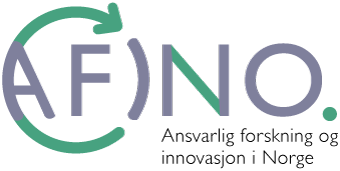Quality and foresight in responsible research and innovation
Quality and foresight in responsible research and innovation
This part of AFINO will utilize a so-called “post-normal science” framework to elucidate and deliberate the concept of quality in science.
Basically, this is the conception that the scientific output is at least good enough for the purpose where it is intended to be used, a science-fit-for-purpose. Note that this conception liberates us from talking about truth and objectivity. In other words, uncertainty in our knowledge, as well as disputed values that also enter the sciences, are already baked into our general framework. Given this background, we want to help linking good science to good policies, in particular in terms of designing our common futures.
Implicit in this effort is the recognition that the sciences as we currently see them practised, are not really fit for this purpose. We diagnose too many silos that do not communicate with each other, we detect too many reward mechanisms that maximise vacuous or even badly flawed scientific outputs, we note too many power mechanisms in the struggle for influence and funding, and we notice too many communication breakdowns between the sciences and their publics, i.e. potential users.
While our world is presenting us with a great number of enormously complex challenges for our lives in the future, and while many agree that in many areas of life we need to see a radical sea-change – as e.g. envisaged by the SDGs -, our current scientific and technological practices provide virtually no useful pointers. Science and technology is more often the problem rather than the answer, and lack of social robustness leads to diminishing trust in our sciences. We still educate far too many scientific bureaucrats within the box, rather than creative, artistic and free innovators outside the box.
The recipe we envisage to remedy this, is a deep cultural change within the sciences and innovation.
While the current leader of this working group has a particular affinity to concepts such as Slow-science, Citizen Science, Participative Governance, Post-normal Science, Value-landscapes, and Practical Ethics Assessments, this conversation under this working group is by no means limited to these. Various means such as blog posts, lectures, and YouTube videos will be deployed to engage AFINO partners and the public in constructive and insightful conversations.
Facts
Project leader: Matthias Kaiser. On occasion, specific supplementary topics will be headed by specially invited contributors.
Institution: Centre for the Study of the Sciences and the Humanities, University of Bergen
